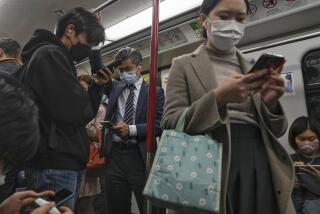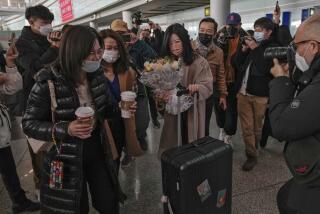Fearing new round of coronavirus, mask-wearing Hong Kong targets barefaced foreigners
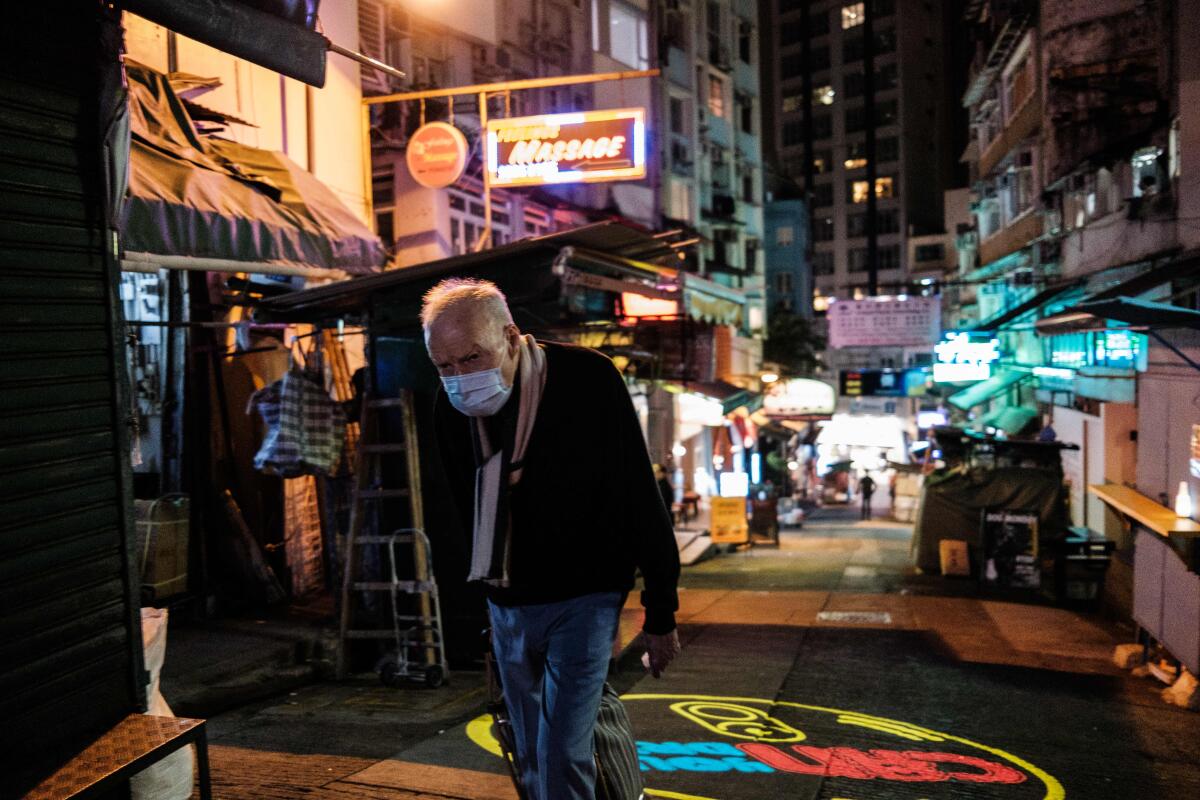
HONG KONG — Front-page stories in Hong Kong newspapers warn that foreigners, mostly Westerners kissing and carousing in a neighborhood known for its nightlife, are endangering the city with a new round of the coronavirus.
“Downfall of the Devil’s Den,” read one headline, referencing news that at least five confirmed COVID-19 patients had gone drinking in the Lan Kwai Fong district. Hong Kong’s health authorities have not confirmed the neighborhood was the source of the outbreak, but a backlash against foreigners has drawn race and culture into the fight to contain the deadly virus.
While domestic infections had dropped in Hong Kong, Taiwan and China, a new wave of imported cases is raising tensions between locals and expatriates, especially those from Western countries where many citizens are perceived as not taking the pandemic seriously, even as infection numbers rise in Europe and the U.S.
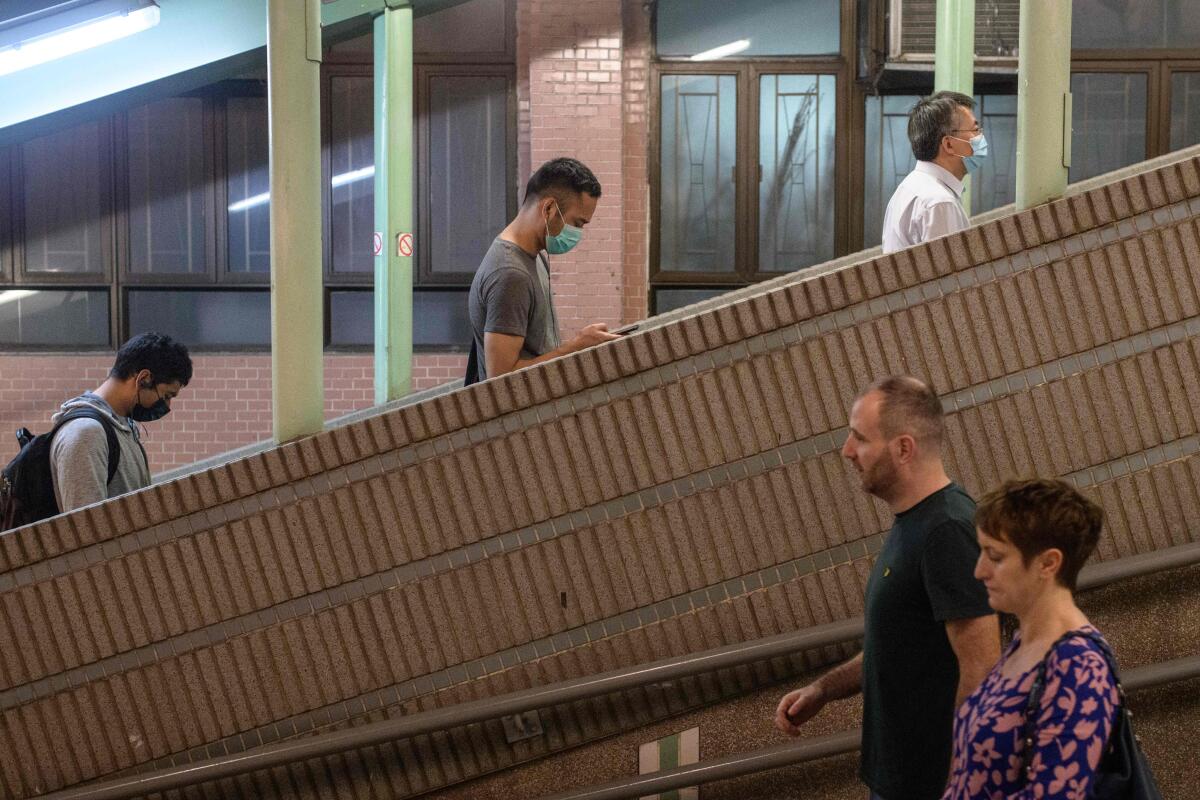
Hong Kong has seen more infections in a week than it has in months, most of them coming from abroad. The number of confirmed infections hit 351 on Monday as people flooded back to the city from the United States, Britain and Europe. Officials fear a new outbreak in the next two weeks could paralyze the medical system.
Hong Kong Chief Executive Carrie Lam announced this week that the city would stop all foreign visitors and transit arrivals. Travelers from Taiwan, Macao and mainland China could still enter, but would be quarantined for 14 days. It was a drastic move for a city that brands itself as “Asia’s World City” and relies heavily on tourism.
Lam also said the city was planning to ban the sale of alcohol in 8,600 bars, restaurants and clubs. The restrictions come after a surge of public opinion in Hong Kong against foreigners frequenting neighborhoods known for nightlife.
The latest updates from our reporters in California and around the world
At a Hong Kong University news briefing on efforts to combat COVID-19, epidemiologists displayed a photo of Friday night partyers crowding a street lined with bars. It was a warning that the lack of social distancing was increasing Hong Kong’s risk of transmissions.
The tensions extend to mask-wearing, underscoring differences in social norms between Hong Kong locals and outsiders. Hong Kong’s health authority and local scientists have said that masks are not necessary except for those who are sick or entering high-risk areas, such as medical workers coming into contact with potentially infected people.
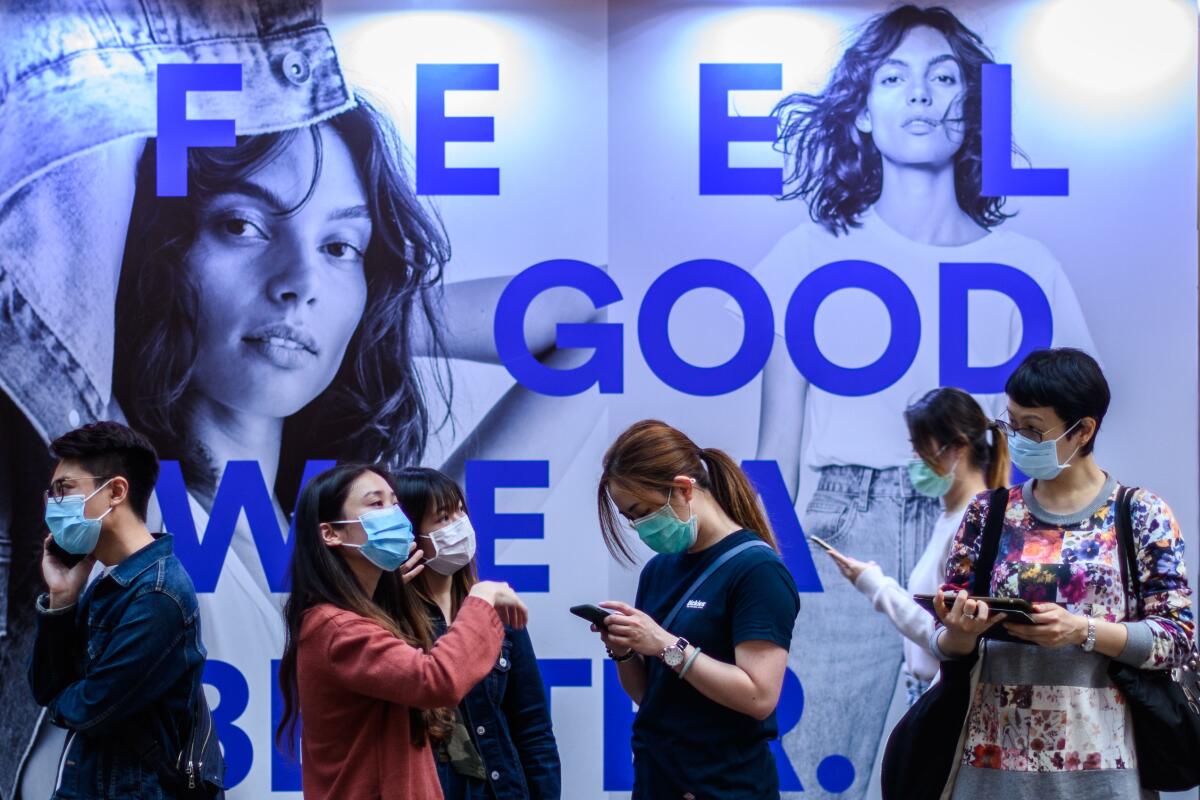
But almost everyone in Hong Kong wears a mask. It’s a rare face here that’s barefaced, and instead of perfume, it’s the smell of hand sanitizer that now lingers in the air.
Community policing is common. If people aren’t behaving, they are quickly admonished. Cecilia Tam, a public health professional, said one day she left her apartment to run a quick errand. “I wasn’t wearing a mask, and no one wanted to ride the elevator with me,” she said.
Early in the coronavirus outbreak, people rushed to buy masks, hand sanitizer, bleach, soap and toilet paper, wiping out Hong Kong’s stocks. Medical workers went on strike to demand that the government provide protective equipment for them, and to ask for a closed border between Hong Kong and mainland China.
Part of the panic comes from memories of the 2003 SARS epidemic, which killed hundreds of people in Hong Kong. Even without a government lockdown, Hong Kong locals automatically implemented social distancing, staying at home and avoiding gatherings.
People returned to practices they’d learned during SARS: They avoided elevators. They used ballpoint pens or tissues to press buttons and elbows to touch door handles. Public places like malls and subways were regularly disinfected. Many buildings took people’s temperatures before allowing them entry.
What makes COVID-19 riskier than SARS is its long incubation period and the possibility that people carrying the virus are contagious before they show symptoms. A recent report by the South China Morning Post, citing classified Chinese data, found that a third of COVID-19 cases were asymptomatic, “silent” cases.
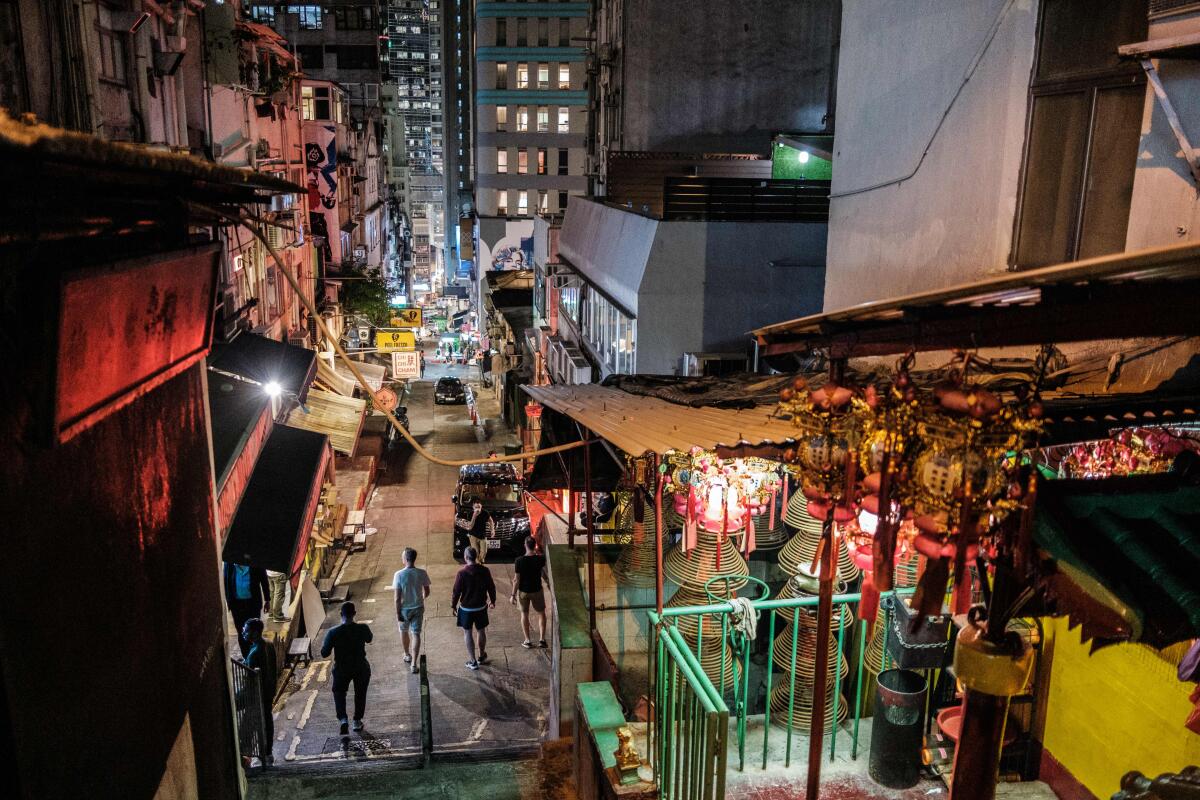
Without knowing who’s sick and who’s not, Hong Kong locals are wearing masks en masse as a signal of collective responsibility for the society’s well-being.
Mask-wearing can help enforce other preventive behavior in the virus outbreak, said Gavin MacGregor Skinner, director of training for the Chicago-based Global Biorisk Advisory Council. Wearing masks helps remind wearers to stop touching their faces, for example.
“This first thing we teach people in hospitals is to keep your hands down away from your face. Don’t bring them above your shoulders,” he said. “You’ll get your hands slapped down if you do,” he joked.
Morgan Davis, a financial journalist, said she usually wears a mask, but sometimes leaves it behind when she walks her dog.
“The doorman gives me such a hard time about not wearing it. Gestures at me angrily. He actually started bringing me masks, thinking I couldn’t get any,” she said, imitating the motion of the elderly guard shoving masks into her hands.
Hong Kong’s self-enforced measures appeared to work. Despite having some of the earliest coronavirus cases and being one of the most densely populated cities in the world, just across the border from mainland China, Hong Kong had only 386 cases on Tuesday. Compare this with New York, similarly dense, which developed thousands of cases in just weeks.
But as the pandemic’s epicenter shifts to Europe and infection numbers skyrocket in the United States, which has more than 55,000 cases, fear of imported infections has risen again.
On Saturday, a dozen friends gathered at a local bar to celebrate a couple’s civil marriage. Their wedding might be postponed, but it was a chance to have drinks in their honor. About half the guests had declined to come. The others wore masks and brought hand sanitizer.
“We will drink so we will kill the virus. Pour the alcohol straight into our mouths,” joked Thomas Guimbault, 45, lifting his beer. A former pharmacist from France — which is now under lockdown, with more than 22,000 confirmed cases — Guimbaut now works in logistics.
He said masks were only necessary for doctors, patients and their close contacts. But he acknowledged the psychological effect of mask-wearing. It’s a way for people to feel like they’re doing something, he said, even if it wasn’t actually effective - like “wearing costumes in a plague.”
Victor Thomazo, the bar’s manager, said he and his staff had been careful given their high customer traffic every day.
“Most of the people are wearing [masks], but the people who don’t respect are Westerners. Those who aren’t wearing masks are young. They think: ‘I’m in good health.’ They go to work wearing a mask, when they go to the streets they’re not wearing them anymore,” he said.
Days after drinking with his friends, Guimbault changed his opinion about wearing a mask.
“I now think it should be better to promote its use,” he suggested. He had earlier said: “I think we will discover that the West and East are the same.”
Choi is a special correspondent. Times staff writer Alice Su contributed to this report from Shanghai.
More to Read
Sign up for Essential California
The most important California stories and recommendations in your inbox every morning.
You may occasionally receive promotional content from the Los Angeles Times.
